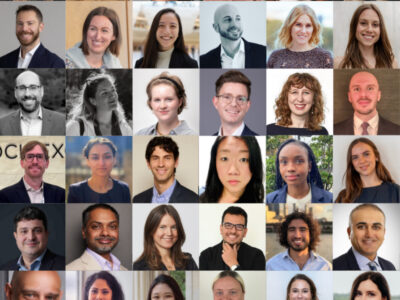
Building on the success of Columbia’s M.S. in Sustainability Management program, the M.S. in Sustainability Science program was launched in 2018 as a means to equip students with a technical understanding of the pressing sustainability issues threatening Earth’s natural systems, and the scientific tools to respond to these changes. The M.S. in Sustainability Science program sees the integration of scientific knowledge in decision-making as a valuable skill growing in demand from policymakers and corporate managers.
Much as students in the M.S. in Sustainability Management program have access to leading practitioners in sustainability, students in the M.S. in Sustainability Science learn from the unparalleled expertise of researchers at Columbia’s Lamont-Doherty Earth Observatory. Equipped with these cutting-edge techniques, students apply their acquired knowledge to help organizations and businesses address the environmental impacts and risks of their operations.
The M.S. in Sustainability Science (SUSC) program is best suited for prospective students with undergraduate degrees in engineering, math, science, and related fields, who want to pursue technical sustainability careers, such as a chief environmental scientist or program manager of environmental technologies.
SUSC co-directors Art Lerner-Lam (Lamont Research Professor and deputy director of the Lamont-Doherty Earth Observatory) and Brad Linsley (Lamont Research Professor) note that “sustainability science is a broad, emerging field that is rapidly evolving.” As such, the “SUSC curriculum is not focused on any aspect of sustainability science, but instead trains students in a broad range of disciplines.”
The goal of the program is to give students the tools to understand the underlying scientific concepts so that they can apply them to decision making, and represent the voice of science in a room of non-scientists. In some fields such as engineering and consulting, the role of “scientist” can be looked down upon, and we want our students to avoid being pigeonholed into this limited role.
“We want to position SUSC students at the interface between the science of sustainability and the applied solutions required to mitigate problems.” — Brad Linsley, co-director, M.S. in Sustainability Science
With this goal, the SUSC program strives to integrate policy-related approaches to complement students’ strong scientific foundation in the field. As mounting concerns regarding climate change take the center stage of public debate, educating policy makers about sustainability-related science has become increasingly important.
Given that the SUSC program’s curriculum covers a broad range of subjects and is not narrowly focused on any specific areas, students have the flexibility to explore their interests and design a course load which truly excites them. The program offers full-time and part-time options for those with current professional obligations, along with flexible course options, which can be tailored to students’ specific career goals. Students can take advantage of Columbia’s unparalleled resources and professional network, along with our global alumni base. Many SUSC students take advantage of research and internship opportunities through the program, which allows students to address real-world issues and design innovative solutions. New York City serves students as a living laboratory for developments in sustainability practice, and as a source of many employers who hire our graduates.
For students interested in applying to the program, the next deadline to apply is May 15, 2021, for fall 2021 enrollment. We encourage students to virtually attend one of our online courses, and to connect with current students and alums. Please view our application guidelines here or reach out to the program office (sostrowski@ei.columbia.edu) for more information.
Celebrating its tenth anniversary in 2020, the M.S. in Sustainability Management, co-sponsored by the Earth Institute and Columbia’s School of Professional Studies, trains students to tackle complex and pressing environmental and managerial challenges. Visit the website to learn more.



